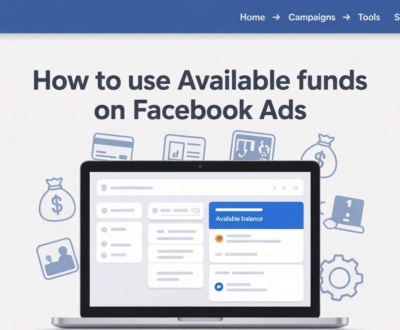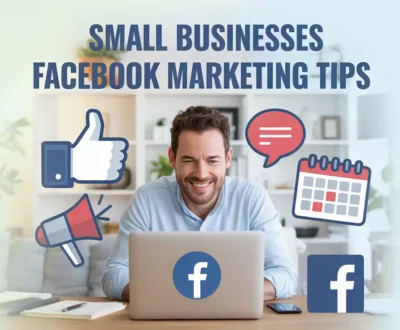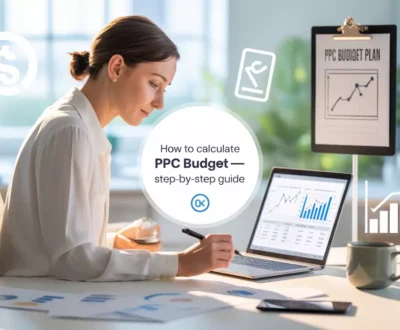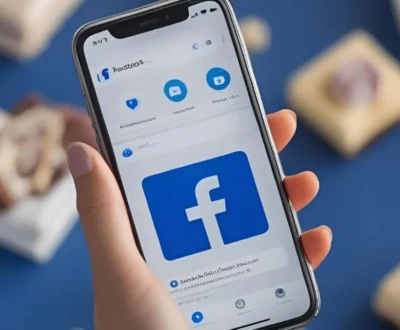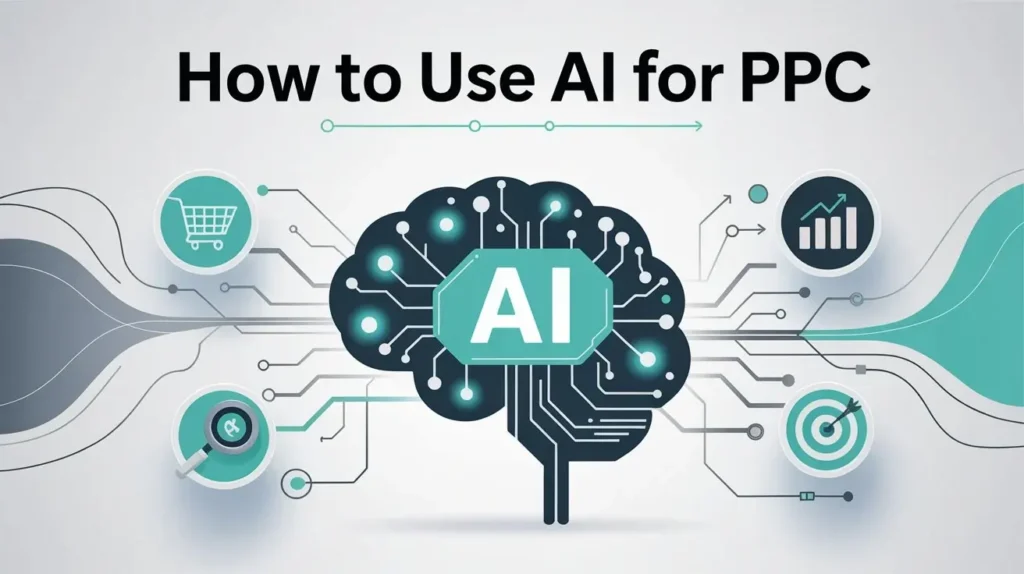
In today’s fast-paced digital advertising landscape, Pay-Per-Click (PPC) campaigns are more competitive than ever. Businesses need to constantly optimize their strategies to stand out. One of the most effective ways to stay ahead is by harnessing the power of Artificial Intelligence (AI).
But how do you use AI for PPC? This guide explores everything from smart bidding to automated ad creation, showing how AI is transforming PPC from a manual grind into a data-driven powerhouse.
What Is AI in PPC Advertising?
AI in PPC refers to the use of machine learning algorithms, data analysis, and automation tools to improve every aspect of your paid advertising strategy. Whether you’re managing Google Ads, Microsoft Ads (formerly Bing Ads), or Facebook Ads, AI can help you:
- Predict which keywords will perform best
- Automatically adjust bids
- Optimize ad copy
- Enhance targeting and segmentation
- Increase ROI with real-time decision-making
Why Use AI in PPC Campaigns?
Here are the core benefits of using AI in PPC:
- Faster optimization: AI analyzes massive data sets in seconds.
- Better targeting: AI predicts user behavior and tailors ads accordingly.
- Higher ROI: Smarter bidding and ad placements reduce waste.
- Improved ad copy: AI tools generate and test more effective messaging.
- Time savings: Automation eliminates many manual tasks.
1. AI for Keyword Research and Selection
Manual keyword research is time-consuming and often incomplete. AI changes the game.
How It Works:
AI-powered tools like Google Ads Keyword Planner, SEMrush, and Ahrefs can identify high-performing keywords by analyzing search trends, user intent, and competitor data. Some tools even suggest long-tail keywords that are easier to rank for and cheaper to bid on.
Benefits:
- Discover untapped keyword opportunities
- Predict search volume and intent
- Avoid irrelevant or low-converting terms
2. AI-Powered Ad Copy Generation
Crafting ad copy that converts can be hit or miss. AI tools like ChatGPT, Copy.ai, and Jasper allow marketers to generate multiple ad variations quickly.
How It Works:
Input your product, service, or value proposition, and the AI generates engaging headlines, descriptions, and CTAs. Many tools can A/B test ad copy in real-time and optimize based on performance.
Benefits:
- Faster ad copy creation
- Continuous testing and optimization
- More personalized and dynamic ad messaging
3. Smart Bidding and Bid Adjustments
Manual bidding is becoming obsolete thanks to AI-driven Smart Bidding strategies.
What Is Smart Bidding?
Google and Bing Ads offer machine learning-based bid strategies that adjust your bids in real time based on:
- Device
- Location
- Time of day
- Audience behavior
- Conversion likelihood
Popular Smart Bidding Strategies:
- Target CPA (Cost Per Acquisition)
- Target ROAS (Return on Ad Spend)
- Maximize Conversions
- Maximize Clicks
Benefits:
- Reduce cost-per-click (CPC)
- Improve conversion rates
- Set bids based on actual performance data
4. AI-Based Audience Targeting
AI allows for hyper-targeted ads that go beyond basic demographics.
How It Works:
AI analyzes user behavior across search engines, websites, apps, and social platforms. Tools like Google’s Custom Audiences or Meta’s Lookalike Audiences use AI to find similar users who are more likely to convert.
Benefits:
- Find high-intent customers
- Improve personalization
- Reduce wasted ad spend
5. Dynamic Ad Personalization
AI enables dynamic ads that automatically adapt based on the viewer’s behavior, preferences, and past interactions.
Examples:
- A user searching for “best running shoes” sees a customized ad showing your top-selling running shoe.
- Someone who visited your pricing page might see a discount code in their ad later.
Tools:
- Google’s Responsive Search Ads
- Facebook’s Dynamic Creative
Benefits:
- Higher engagement
- Improved click-through rate (CTR)
- Increased conversions
6. AI-Driven Predictive Analytics
Predictive analytics uses historical data to forecast future trends and outcomes in your PPC campaigns.
Use Cases:
- Forecast conversion rates based on the time of year
- Identify peak ad performance times
- Spot low-performing campaigns early
Tools:
- Google Analytics 4
- HubSpot AI Forecasting
- IBM Watson Marketing
Benefits:
- Anticipate trends before competitors
- Make smarter budgeting decisions
- Prevent campaign underperformance
7. Landing Page Optimization with AI
Even the best PPC ad can fall flat without a well-optimized landing page. AI can help here, too.
How:
- AI heatmaps (like Crazy Egg or Hotjar) show where users click and scroll
- A/B testing tools use AI to automatically test and deploy the best version
- Chatbots improve engagement and lead capture rates
Benefits:
- Improve user experience
- Reduce bounce rates
- Increase conversion rate
8. Performance Monitoring and Automated Reporting
Keeping tabs on your campaign’s performance is easier with AI dashboards that track KPIs in real-time.
Features:
- Set up alerts for underperforming ads
- Get automated performance summaries
- Visualize metrics through smart dashboards
Tools:
- Google Ads Recommendations
- Adzooma
- Opteo
Benefits:
- Faster decision-making
- Better campaign scaling
- Save time on manual reporting
Challenges of Using AI in PPC
While AI offers massive potential, there are some challenges:
- Data Dependency: AI relies on accurate, large datasets.
- Over-Automation: Too much reliance on AI can reduce human oversight.
- Learning Curve: It takes time to learn how to use AI tools effectively.
To overcome this, combine AI’s automation with human strategy.
How to Get Started With AI in PPC
Here’s a simple roadmap:
- Start with small experiments using AI-driven keyword tools and Smart Bidding.
- Use AI ad copy generators to test new messaging faster.
- Integrate predictive analytics to improve targeting and timing.
- Use automation platforms to streamline optimization and reporting.
- Review and adjust weekly—don’t just set and forget!
Final Thoughts: AI Is the Future of PPC
The digital ad landscape is evolving, and AI is leading the charge. Whether you’re a solo marketer or an agency like Ak Badhak LLC, embracing AI in PPC can drastically improve your campaign performance, reduce costs, and free up your time.
From smarter bidding and personalized ads to predictive analytics and automation, AI is not replacing marketers—it’s empowering them.
Start experimenting with AI in your PPC strategy today—and watch your results soar.
Frequently Asked Questions
1. What is AI in PPC advertising?
AI in PPC refers to using machine learning and automation to manage, optimize, and scale paid advertising campaigns.
2. How can AI improve keyword research?
AI tools analyze search intent and trends to uncover high-performing, cost-effective keywords automatically.
3. Is AI good for writing ad copy?
Yes, AI copywriting tools generate engaging headlines and descriptions, which can be A/B tested for best results.
4. What is Smart Bidding in Google Ads?
Smart Bidding is a machine learning-based bidding system that optimizes for conversions or ROAS in real time.
5. Can AI replace human PPC managers?
No, AI enhances human capabilities but still requires strategy, creativity, and oversight from experienced marketers.
About us and this blog
We are a digital marketing company with a focus on helping our customers achieve great results across several key areas.
Request a free quote
We offer professional SEO services that help websites increase their organic search score drastically in order to compete for the highest rankings even when it comes to highly competitive keywords.
Subscribe to our newsletter!
More from our blog
See all postsRecent Posts
- How to Run Facebook Ads Without Facebook Page August 28, 2025
- Facebook Messenger Bot for Business: A Complete Guide August 27, 2025
- How To Pay For Facebook Ads Without a Credit Card (Full Guide) August 1, 2025






